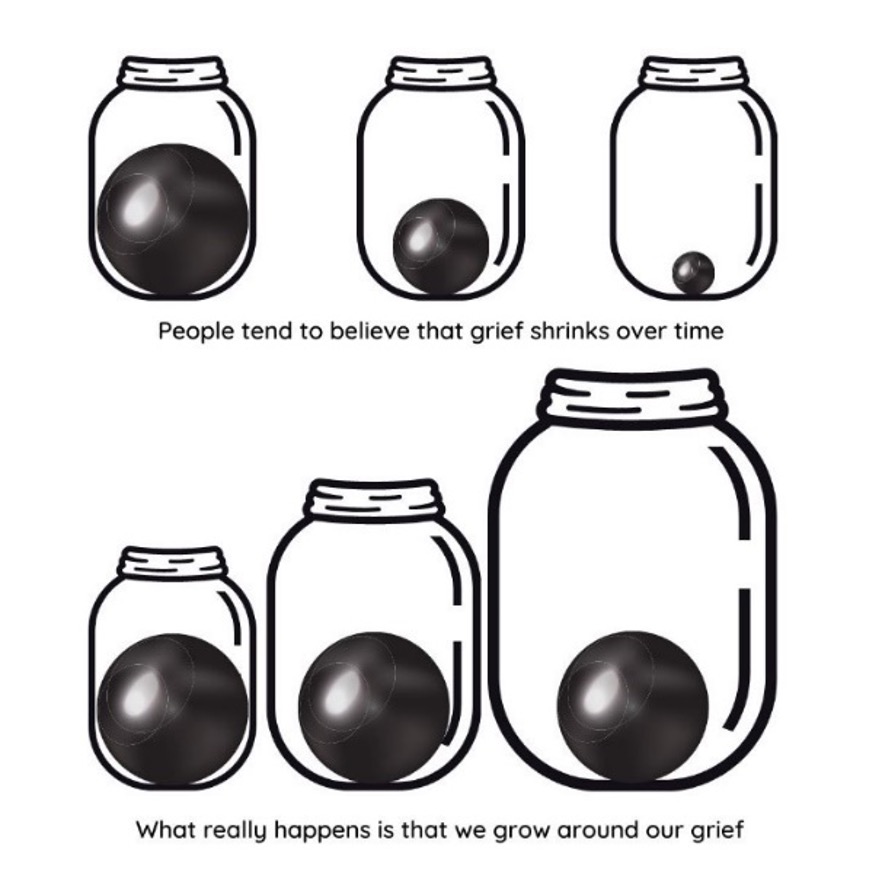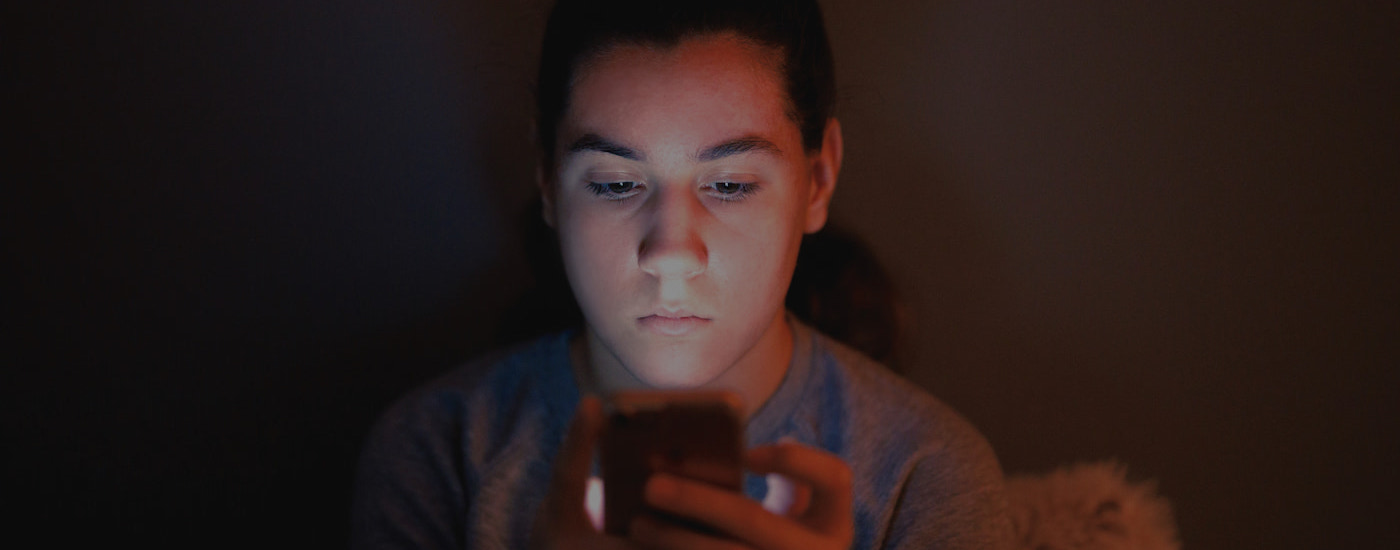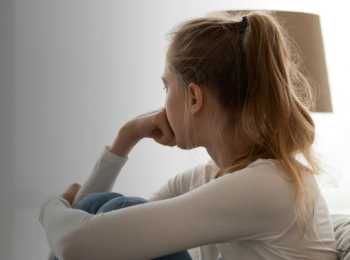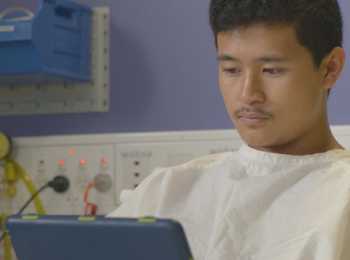Let’s talk about feelings
Dealing with your cancer can bring up all sorts of different feelings. Some of these feelings might come as a surprise to you. At times you may find it difficult to pinpoint what you are feeling and why.
The main thing to remember is: there is no right or wrong way to feel.
Many young people describe having cancer as like being on an emotional rollercoaster. You feel like you are racing along with no control and experience massive ups and downs on the way.
You might not be naturally comfortable with sharing your feelings and may hope they will go away if you ignore them. Feelings are not good or bad; they are just feelings. Even if you keep them hidden or try to ignore them, they will still just be there.
When things get bottled up, they need to get out somehow and this can lead to unsafe behaviour, angry outbursts or a meltdown. As hard as it may be, finding ways to express what you are feeling is important in helping you to deal with the stress of living with cancer.
Cancer came into my life when I was transitioning from high school to uni. It was unexpected, to say the least and certainly not in the plan. Coping with this change wasn’t easy, but having people by my side did make it a little easier. Fiona, 22
Understanding grief and loss
Grief is a natural reaction to a loss. You might think grief is just about when someone dies but people who live with cancer may grieve for lots of things. You may have felt this sense of loss when you were told you had cancer, but it can also happen at other times during and after treatment. It can feel like everything has changed and that life will never be the same again.
Other reasons for your grief include:
- feeling like your body doesn’t work the way it used to
- you look different
- you miss the life you used to have or that plans have changed
- you don’t feel as connected to your friends
- relationships with family might have changed
- miss school, uni or TAFE for a while or quit your job to focus on your health
- missing out on having fun like everyone else your age.
When you’re grieving, it is normal to experience many different thoughts and feelings. Your response may be unexpected and you may be surprised by your response.
Grieving in different ways
You and your family and friends may react to your cancer diagnosis in similar or different ways. For example, some people might take on a ‘management role’ and become practical in their thinking and not talk about their feelings very often. Others might openly express their feelings and cry.
It can be helpful to observe the way you are reacting and how you might be coping differently to your family and friends. You might notice ways that you can help yourself – and possibly others – to cope in a more ‘balanced’ way – being practical sometimes and emotional at other times. This mixed approach can be hard to achieve, but it can really help you to get through this difficult time.
Receiving a cancer diagnosis can feel like a movie scene. Remember, you star and direct this story, and have complete control on how you feel, react and process everything – in your own time. Ezra, 21
Grief, emotions and thoughts
Remember, there is no right, wrong or ‘normal’ way to grieve, and how long it lasts will be different for everyone. Many young people have described how they can sometimes feel many emotions all at once or feel just plain numb. You may feel some or all of the feelings listed below when you’re grieving for a loss.
- Shock and disbelief
- Pain
- Fear and uncertainty
- Stress
- Regret
- Abandonment
- Anger
- Sadness
- Frustration
- Hope
- Clarity
- Guilt
- Embarrassment
- Jealousy
- Loneliness
- Purposefulness
Through my cancer experience, my emotions were all over the place. I have many journals on my journey that record how I was feeling, whether I had a fantastic day or a not so good day. Having a journal helped me write about how people didn't understand what I was going through.
There were days where I hit impressive goals. Then there were days where I used foul language because I couldn't go out or had trouble finding my words.
I learnt to accept my feelings, cry, write them down and realise that your life is your life; you can't always keep up with your friends. You choose your path. Amy, 25
As well as changes to your feelings, there may be some changes in how you think about your cancer diagnosis and the other losses you’ve experienced. For some young people, life does not make sense to them anymore and they have trouble keeping focused. Others may feel like they have no energy and they stop doing things they once enjoyed.
Grief is not a single event. It can come and go in waves, so there will be good days and bad days. Grief doesn’t necessarily lessen over time. Instead, it remains present and big and you grow around it – like in the image below. It’s hard to imagine now, but it won’t always feel this hard.

Finding a way through
It is important to find ways to take care of yourself and to develop healthy habits throughout the grief process. Sometimes when young people are going through tough times, they may deliberately hurt themselves or turn to alcohol or other drugs to try to get relief from the pain. Even though this might seem helpful at the time, this short-term ‘fix’ may cause more issues down the track, including having a negative impact on your health and relationships.
There are ways to live with the grief so that you can continue to move forward in your life and not get ‘stuck’. Look for positive ways to get through the challenging feelings and situations you may experience. Finding strategies that work for you can help with the overwhelming feelings and grief you may feel at different points in your cancer journey.
When I had brain surgery, I couldn't do much for months, and it affected my emotional wellbeing. So I started a journal and wrote down what I felt and why. It helped my headspace. There were times when it didn't help, and all I wanted to do was cry and scream, which I did. Amy, 25
Ways to cope with grief:
- Write a journal or blog – share it with the world or keep it to yourself.
- Get organised – a weekly planner and to-do list can help things seem a bit more manageable but don’t take on too much.
- Exercise – a walk, swim, yoga or bike ride a few times a week can reduce stress and help you to feel better (talk to your treatment team first).
- Try something new – ever wanted to learn to play guitar or paint? Learning something new might help to distract you from the worries of cancer and give you a sense of achievement.
- Meditate – you might be amazed at how good this feels. (Try downloading a meditation app to help get started)
- Hang out with positive and caring people.
- Keep doing normal things – connect with your family and friends, listen to your favourite music and try to do as many of the things you used to do as possible.
- Get plenty of sleep – when you’re really tired, emotions and stress can be even harder to deal with.
- Join a support group – get in touch with people who understand what you’re going through and can share tips, support and info. You might want to check out Canteen Connect.
Religious beliefs and spirituality
Living with cancer can make you start to think about your spiritual beliefs.
Spirituality is a broad term for how you make meaning in the world – through nature, people around you, culture, tradition and religious beliefs. Going through something like cancer will likely change how you feel about life, death and everything in between. That's generally because you're seeing things from a new perspective.
It's okay to not have the answers, to change your mind about things, and to explore how you feel about life. In fact, it's an important part of being a young person. You can explore these things in conversation with people you trust or look up to; through art, music, reading and self-expression; or just being in places that mean something to you.
If religion plays a big part in your life, it can provide you with support and security as you deal with the experience of having cancer. However, be prepared for your faith to be tested – you may start to question your religious beliefs. It is not uncommon for young people to do this anyway.
If you no longer want to participate in the customs and rituals of your family’s religion, it might contribute to some conflicts at home.
If you weren’t particularly religious before, you might be drawn towards some sort of formal religion. If this gives you support and helps you deal with what is happening for you, it can be a very positive thing.
Belonging to a religious-based support group may also help you deal with some of the stuff you are going through.
Even if you are not into traditional religion, you might find that you develop an interest in other beliefs and types of spirituality. It can be a way to get some answers or find meaning in what is otherwise an unfair and tough situation.
Getting support
Even though grief is normal, it can be a difficult and isolating experience. You might struggle to cope with the feelings you’re experiencing, and it may affect your ability to function in areas of your life such as school, work and your relationships. It’s important to reach out to someone you trust who can listen and support you through it.
Canteen offers counselling and individual support and an online community for you to connect with young people in the same boat as you. You can also contact Kids Helpline (1800 55 1800) or Lifeline (13 11 14).
Although it’s normal to have many reactions to your cancer diagnosis, if you notice changes in your life that are getting difficult to manage and are affecting your daily activities, studies, work, relationships or self-esteem, it is a good idea to get extra support. Talk to your GP or treatment team.
Managing other people’s expectations
Young people say that their cancer experience has taught them so much about themselves and life, has made them appreciate the little things and helped them to find a strength they didn’t know they had.
But staying positive and trying to remain composed and ‘chilled’ all the time can be a difficult expectation to live up to. You may feel pressure to ‘keep it together’ and to stay positive. Some people in your life may have even told you to keep it together too.
Having cancer may be one of the biggest and scariest things that you ever face, and it’s normal to be worried and upset and to show it.
So, this is a reminder that it’s okay to …
- Still get angry with the people you love and not be the perfect son, daughter, brother, sister, friend or partner
- Not feel brave all the time or think that the whole experience will be good for you
- Not feel positive all the time
- Not feel “lucky” that your cancer has been cured
- Not feel like you’ve been through a life-altering transformation
- Not feel special.
It’s tough enough going through the cancer experience. I don’t think any expectation applies to our reality – other than living out our blessings. Ezra, 21


















